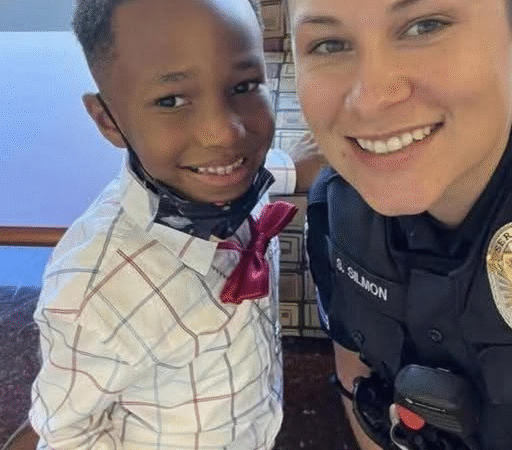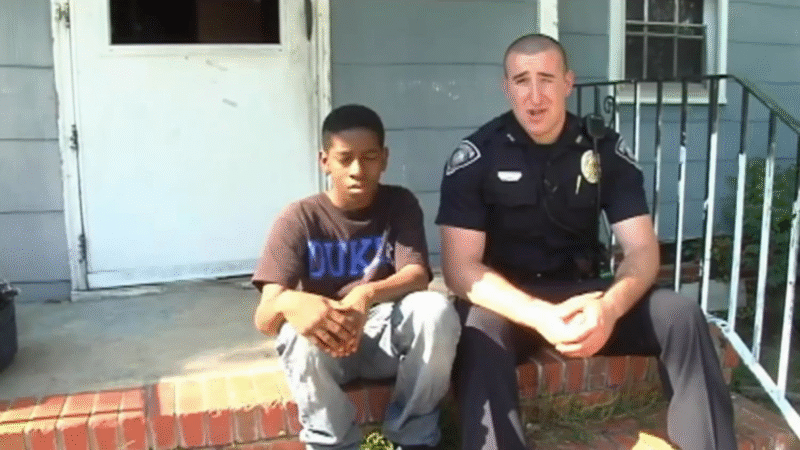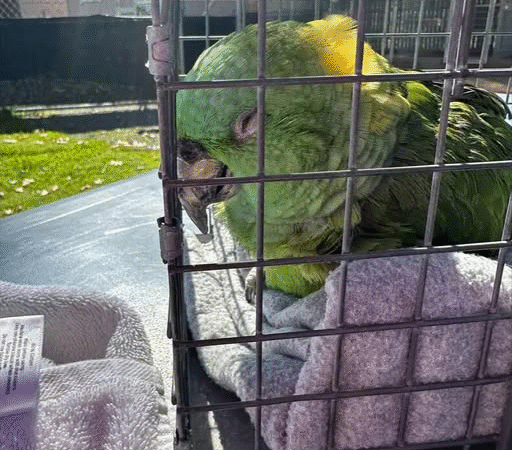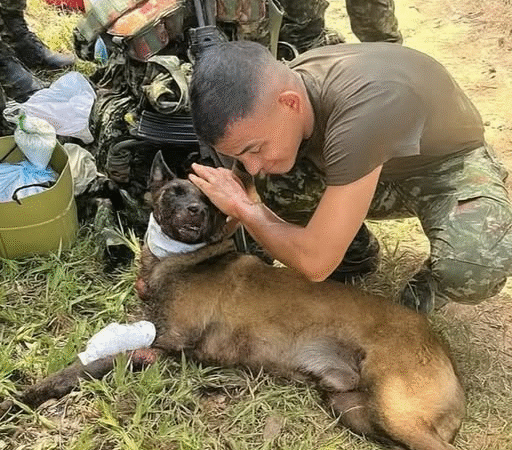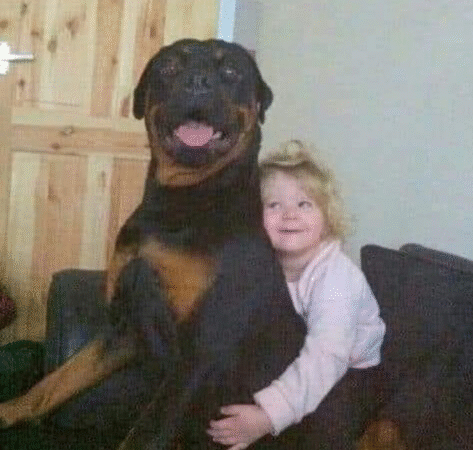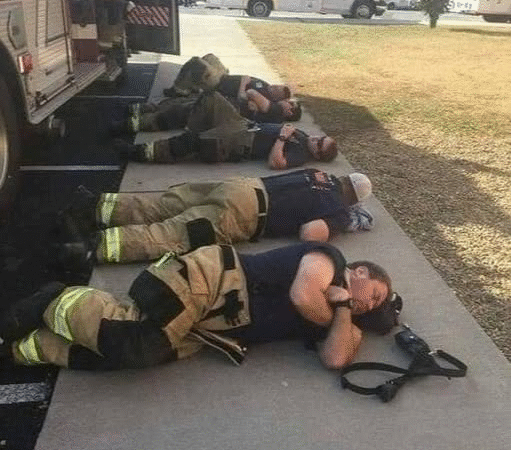The Storytime on the Curb: A Firefighter’s Quiet Heroism..
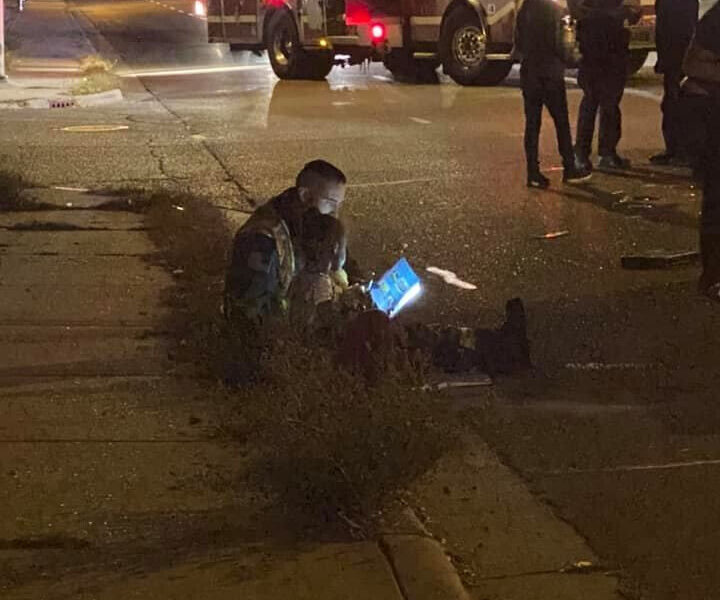
The night air was heavy with flashing lights, the whir of sirens, and the sound of broken glass being swept off pavement. In Billings, Montana, a two-car accident had just turned an ordinary evening into one a young family would never forget.

It was the kind of moment filled with chaos—tow trucks pulling in, officers jotting down reports, parents trying to answer questions while holding back the tremble in their voices. But in the middle of it all, a quiet act of compassion unfolded on the curbside.
A little girl—no older than six—sat on the cold pavement, eyes wide, lip quivering, trying her best to make sense of what had just happened. She hadn’t been hurt in the crash, at least not physically. But the confusion, the noise, the fear—those things cut deep into the mind of a child.
And that’s when he sat down beside her.
Firefighter Ryan Benton, just 26 years old, reached into his engine and pulled out something unexpected—not a tool or a trauma kit, but a book.
He knelt next to her on the sidewalk, opened the pages, and began to read.
No fuss. No big gesture. Just a man in turnout gear, reading softly under the glow of red-and-blue lights. The girl leaned in, her little fingers tracing pictures as the words floated above the night’s tension like a lullaby. Her eyes began to settle. Her breathing slowed. For a few precious minutes, the world became simple again—just a story, a voice, and a gentle presence.
A bystander named Allie Marie Schmalz happened to witness the moment. She snapped a photo and later posted it online with just three words: “Sweetest thing ever.” And that photo, shared thousands of times, touched hearts around the world.
But for the Billings Fire Department, this wasn’t a one-time miracle.
It’s part of who they are.
Each of their engines carries a special backpack—filled with stuffed animals, coloring books, and child-friendly reads about firefighters. It’s not a requirement. It’s not a policy pushed from the top down. It’s something they choose to do—because they know that not all wounds are visible. And sometimes, the best way to care for a family isn’t with a fire hose or a rescue tool… but with a story.
“This allowed her to calm down,” a department spokesperson said afterward. “And allowed the parents to focus on getting some sense of normalcy back after a traumatic event.”

And that’s what made Ryan’s gesture so powerful. He didn’t just respond to the scene. He responded to the moment. To the heart of a frightened little girl who needed something more than flashing lights and adult voices.
She needed kindness.
She needed calm.
She needed someone to see her.
And he did.
In a world where first responders are often celebrated for acts of physical courage—charging into flames, pulling people from wreckage—it’s easy to forget the quieter forms of bravery. The emotional labor. The gentleness. The patience to sit on a cold curb and offer a child safety in the form of a picture book.
That night, Ryan Benton didn’t just help clear a crash site.
He reminded us that sometimes, heroism isn’t loud. Sometimes it doesn’t wear a cape or carry an axe. Sometimes, it just kneels down, opens a book, and says, “Let’s read this together.”
And in doing so, he gave a little girl something she’ll remember far longer than the sound of sirens: a moment of peace in the middle of chaos.
He didn’t ask her questions she couldn’t answer. He didn’t try to distract her with empty promises that everything would be okay. Instead, he gave her something she could hold onto—something gentle and real. With each turn of the page, she found a rhythm to her breathing again, her shoulders no longer tight with fear. She clung to the story like a lifeline, escaping into a world where things made sense and monsters were only in books, not riding in ambulances or standing behind flashing lights.
As the moments passed, the scene around them slowly quieted. The tow trucks rumbled off into the distance. The officers wrapped up their reports. Glass had been swept, cars cleared. But that image—Ryan reading to her under the flickering lights—lingered like an afterglow on everyone who witnessed it. Even those who were strangers, waiting in nearby vehicles, found themselves moved by a firefighter’s willingness to meet fear with gentleness.
The girl’s mother, shaken but unharmed, approached with tears in her eyes. She didn’t interrupt. She stood there silently, watching her daughter slowly return to herself. When Ryan closed the book and stood up, he didn’t say much. He just handed the book to the little girl, who clutched it like treasure, and gave her a soft smile. The mother thanked him with a quiet, choked-up “thank you”—the kind you say when words feel too small to contain the gratitude inside.
Later, when the family had been safely escorted home and the scene finally cleared, Ryan returned to the firehouse like he would after any other call. He didn’t expect applause. In fact, he was surprised when his captain mentioned the viral photo. “You made the rounds on Facebook,” someone said, grinning. Ryan shrugged it off. He hadn’t done it to be seen. He’d done it because it was what needed to be done. Because being a firefighter isn’t just about fighting fires—it’s about meeting people in their most vulnerable moments and doing whatever it takes to help them feel human again.
In the days that followed, messages poured in from people across the country. Teachers. Parents. First responders. Survivors of accidents. They all wrote with the same sentiment: This mattered. One teacher even wrote that she had printed the photo and hung it in her classroom as a reminder to her students that kindness can look many different ways—and that strength often wears the softest voice.
One firefighter in another state said it best: “We train for the big emergencies, but it’s the small, human moments that stay with us the longest.”
Back in Billings, the firehouse continues to restock those child comfort backpacks. Sometimes it’s the firefighters themselves who buy new books or toys. Sometimes it’s donations from the community. People now drop off items with notes that say things like, “For the next scared kid you meet.” What was once just a quiet tradition within the department has now grown into something more—a movement, a symbol, a promise that no child will be forgotten in the midst of disaster.
And as for the little girl? Her parents later shared that she began asking to read that same book every night before bed. It became her anchor. Her way of remembering that even when things go wrong, someone will show up. Someone will care. That storybook, once just a simple tool in a firetruck’s kit, became her story of hope.
One evening, a few weeks after the accident, the firehouse received a hand-drawn card in the mail. On it was a crayon drawing of a firefighter reading a book to a little girl. The sun was shining. There were no flashing lights, no broken glass. Just peace. Inside the card were six small words, carefully written in a child’s scrawl:
“Thank you for helping me smile.”
Sometimes, the deepest healing comes not from medicine or machines, but from compassion that arrives when we least expect it. From a voice that reads instead of commands. From someone willing to sit in the mess and simply be there.
And that’s what first responders like Ryan Benton show us—that even in a world full of uncertainty and pain, there are still people who will pause, sit down on a sidewalk, and open a book. Not because they have to. But because they care.
Because they see.
Because sometimes, saving a life starts with saving a moment.

The crash was sudden, the aftermath chaotic—sirens, shattered glass, panicked voices. But amid it all, a small act of kindness quietly stole the scene.
A little girl, wide-eyed and shaken, sat alone on the curb. She hadn’t been hurt, but fear clung to her like smoke. That’s when firefighter Ryan Benton did something simple and extraordinary: he grabbed a children’s book, knelt beside her, and began to read.
No big speech. No crowd. Just a calm voice, a story, and a safe presence in the chaos.
For a few precious minutes, the flashing lights faded. Her breathing slowed. The fear softened.
What Ryan did wasn’t policy—it was compassion. One small moment that let a frightened child feel seen, and gave her family a chance to breathe again.
Sometimes, the bravest thing a hero can do… is sit down.
And simply, be kind.
![]() Read more in the comment below.
Read more in the comment below.
